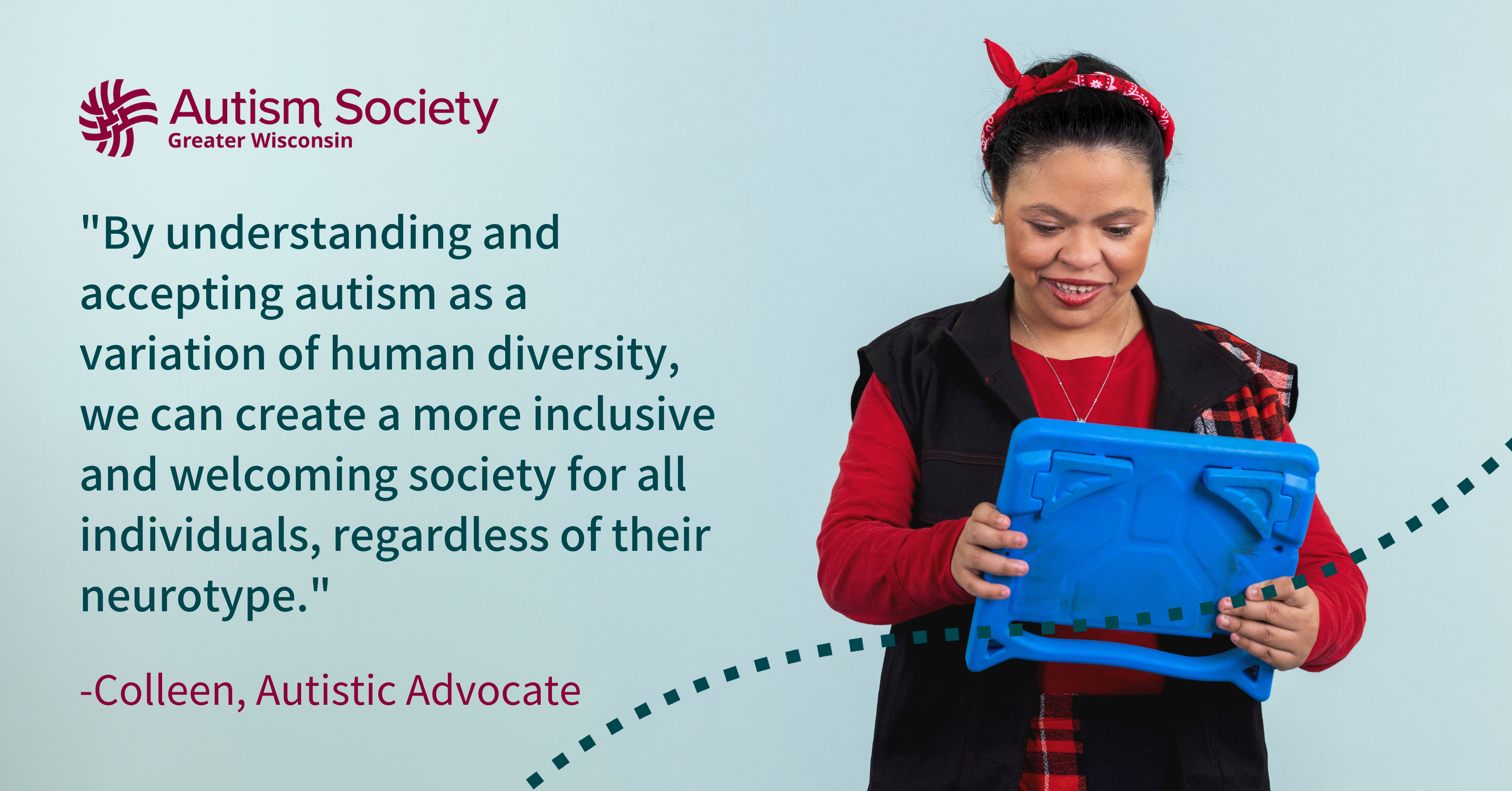Celebrating Differences: Colleen

April is Autism Acceptance Month. While acceptance and inclusion are year-round efforts, the Autism Society of Greater Wisconsin recognizes April as a special opportunity to seek out and amplify a range of autistic experiences and perspectives.
Colleen is an autistic advocate in Central Wisconsin. She recently shared with us her perspective on acceptance in our community:
ASGW: What do you wish the community knew about Autism or acceptance?
Colleen: Many autistic people, myself included, often wish that their communities knew that autism is a natural neurological variation. Often, autism is stereotyped as being inherently negative due to autistic peoples’ inherent difficulty with allistic communicative practices and tendency towards forms of expression that don’t resonate with societal norms. In my opinion, autism itself is a neutral quale, with its own set of strengths and challenges. For example, while many autistic people may have difficulty with social communication and interaction, we also tend to have exceptional memory skills, intense focus, and great attention to detail. Similarly, autistic peoples’ unique way of processing information can lead to new and innovative ideas. By understanding and accepting autism as a variation of human diversity, we can create a more inclusive and welcoming society for all individuals, regardless of their neurotype.
ASGW: What does an accepting community look like to you?
Colleen: A community that accepts autism would be one that values and celebrates the diversity of all individuals, including those on the autism spectrum. Such a community would ideally respect my communication style and sensory needs and make an effort to understand them. It would also be a place where individuals of all neurotypes would be included and embraced in community life, without being stigmatized or discriminated against. Finally, an ideal community would prioritize accessibility and accommodations to ensure that all individuals have equal opportunities to participate and thrive.
ASGW: How does Autism acceptance affect your quality of life?
Colleen: Autism acceptance positively affects an autistic person’s quality of life in many ways. When individuals on the spectrum feel accepted and valued, they are more likely to have positive self-esteem, a sense of belonging, and greater opportunities for social connection. They are also more likely to have access to accommodations and support that can help them succeed in school, work, and other areas of life. Additionally, when society embraces autism and neurodiversity in general, it can lead to greater awareness and understanding, which can help to reduce stigma and discrimination against not only those on the spectrum, but against marginalized populations as a whole.


